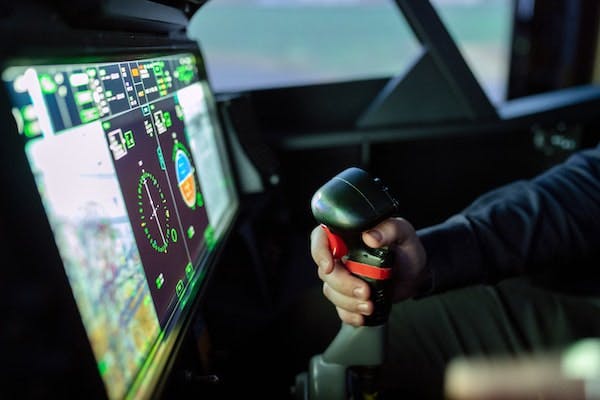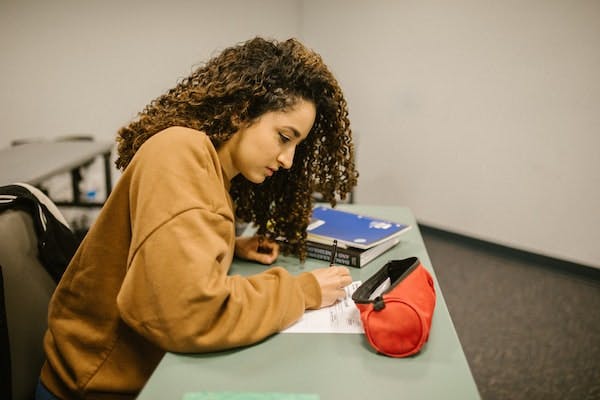5 Game-based Training Examples

Game-based training has gained popularity as it’s more engaging and enjoyable than traditional forms of training. In turn, it’s more effective at retaining information and promoting learning. If you’re looking for ways to implement this, let’s look at some game-based training examples you can use.
What is Game-based Training?
Game-based training is a training method that uses games and other interactive activities to teach learners new skills and knowledge. Trainers can create a more enjoyable learning experience, which can help learners stay motivated and engaged throughout the training process.

There are many different examples of game-based training, and the specific games and activities used will vary depending on the goals of the training and the learner group. The platform also matters since there are PC games, mobile games, role-playing-games, and more. By applying the game-based training examples below, you can effectively help learners retain and apply new knowledge and skills without the mundane task of.
Game-Based Training Example #1 – Simulations
This game-based training example simulates real-world situations, allowing learners to practice their skills and learn new knowledge in a controlled environment. Simulations can be particularly effective for training in fields such as healthcare, aviation, and customer service. For example, a flight simulator game could be used to train pilots. On the other hand, a virtual reality simulation can train surgeons on precise surgical techniques and familiarize them with complex procedures before they operate on actual patients.

The beauty of simulations is that they allow learners to practice their skills and make mistakes without consequences. This can help learners feel more comfortable trying new things and experimenting with different approaches. They’re also especially helpful when you need learners to develop the skills and knowledge needed to handle different situations.
Game-Based Training Example #2 – Puzzles
Puzzles can be a useful tool for game-based training because they require problem-solving and critical thinking skills. You could create a puzzle that requires learners to use the skills or knowledge they have learned in order to solve it. Incorporate them into your training materials to reinforce key concepts or skills being taught. For example, you could use crossword puzzles, word searches, or other types of puzzles to help learners remember important terms or concepts. You can also create a puzzle game that teaches project management skills, such as how to prioritize tasks and allocate resources.

With EdApp, you’ll have access to 80 intuitively designed gamification templates that consist of puzzles like the find-a-word, image/word match, and memory game. These are suited to a diverse set of learning methodologies and allow you to deliver training in your own way.
Game-Based Training Example #3 – Interactive activities
Like other game-based training examples on the list, interactive activities require learners to actively participate and engage with the material in order to learn. For example, a role-playing game could teach communication skills, or a scavenger hunt could be used to review key concepts in a fun and engaging way. Another concrete example is creating a role-playing game that teaches business professionals how to negotiate and communicate effectively in different cultural contexts.

Game-Based Training Example #4 – Quizzes
Quizzes can be a useful tool in game-based training, as they can help learners test their knowledge and understanding of the material being covered. This can be done by including quizzes at the end of each level or section, or by using quizzes as a standalone assessment tool. Quizzes can be made more engaging and interactive by using multimedia elements such as images, videos, and audio clips. This can help make the quizzes more interesting for learners.

Easily identify knowledge gaps and reinforce new information with EdApp’s Rapid Refresh. This quiz maker and learner survey tool delivers questions to learners after any learning intervention – from end-of-month meetings to a product update email. Simply fill in the easy-to-use template and send it to your learners with a click of a button. You’ll also have access to timely analytics to assess the performance of each learner down to a question level, as well as the overall understanding of your team, once a quiz or learner survey is complete.
Game-Based Training Example #5 – Rewards
Rewards can be an effective way to motivate learners and encourage them to engage with game-based training. For example, having a point system can be motivating where points can be awarded for completing certain tasks or reaching certain milestones within the game.

Motivate your learners with EdApp by setting rules to define how many points or stars – its virtual currency – which they can earn in each lesson in the achievements section of our LMS. Learners can then use their stars to win real rewards, such as gift cards and vouchers, through the prize feature.
Leaderboards can also be used alongside to track and compare the performance of different learners. Seeing their name on the leaderboard can be a powerful motivator for many learners. This way, you can also motivate them to complete their training through friendly competition, as learners play for the top spots on your team’s leaderboard.
Author
Gabrielle Rivera
Gabrielle is an eLearning content writer for EdApp, a microlearning solution designed for today's digital habits. She creates content about cutting-edge learning technologies and resources to help companies deliver great training experiences. When not absorbed in writing, she spends her time playing video games and reading books.
